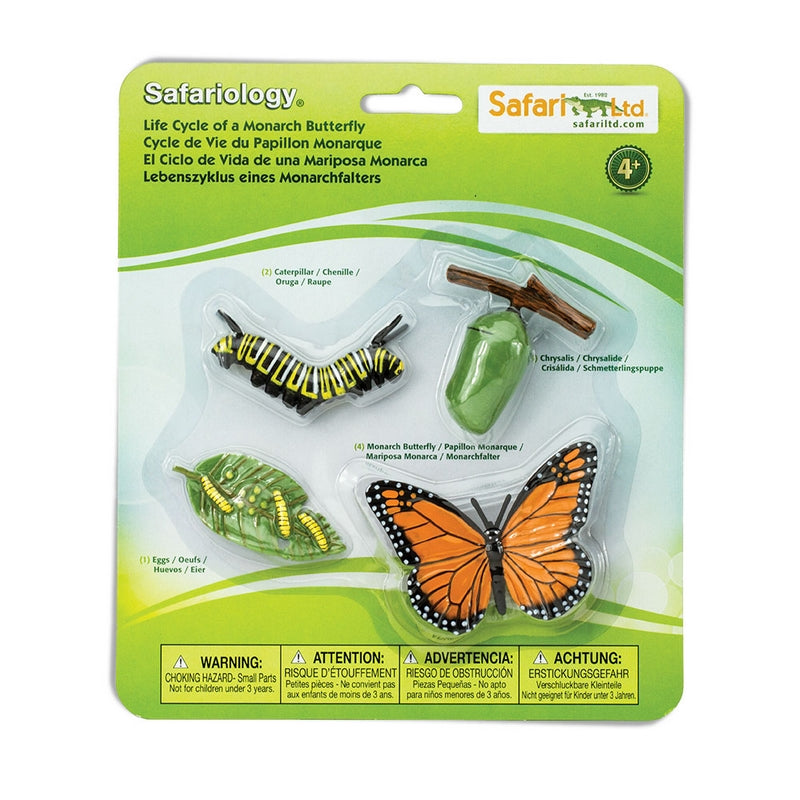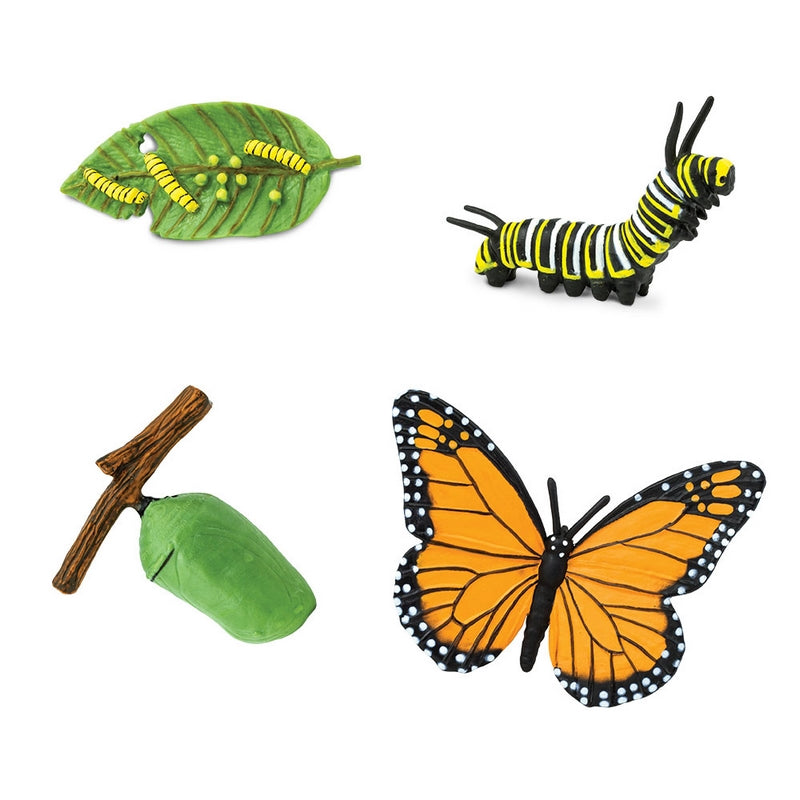- From nearly invisible eggs, tiny striped caterpillars emerge. They begin feeding on the surrounding milkweed leaves immediately, storing food for the transition to come. After two weeks, they form a chrysalis, from which a monarch butterfly emerges after another two weeks.
-
Scientific Name: Danaus plexippus
-
Characteristics: Thanks to its bright orange and black coloring, the monarch is one of the best-known butterfly species. Its amazing transition is shown in this four-part life cycle.
-
Size and Color: The newly emerged caterpillars are black, white, and yellow, a stark contrast with the emerald chrysalis that follows. The finest colors, however, are reserved for the adult monarch butterfly, which is 3 ½ inches from wingtip to wingtip.
- The Life Cycle of a Monarch Butterfly is part of the Safariology® collection.
- All of our products are Non-toxic and BPA free.
History
Monarch butterflies range from Canada to Mexico, spreading their brightly-colored wings wherever milkweed plants, their favorite food, are found. Butterflies have a fairly short life cycle, emerging from eggs after only a few days. Two weeks of gorging on milkweed are all it takes to get to the chrysalis stage, and another two weeks are required for metamorphosis into the dark orange and black beauty that inspires so many. Even more amazing is their migration pattern. Butterflies born in early spring will live only a few weeks, flying north to start the next generation. Subsequent generations also live only a handful of weeks, with each generation continuing the journey north. Finally, the fifth generation of butterflies makes the long journey back south to overwinter in Mexico and start the cycle again.
- Recommended Age: 4+
- Size in cm: 19.5 W x 23 H
- Size in inches: 7.68 W x 9.06 H
- UPC: 095866622602



